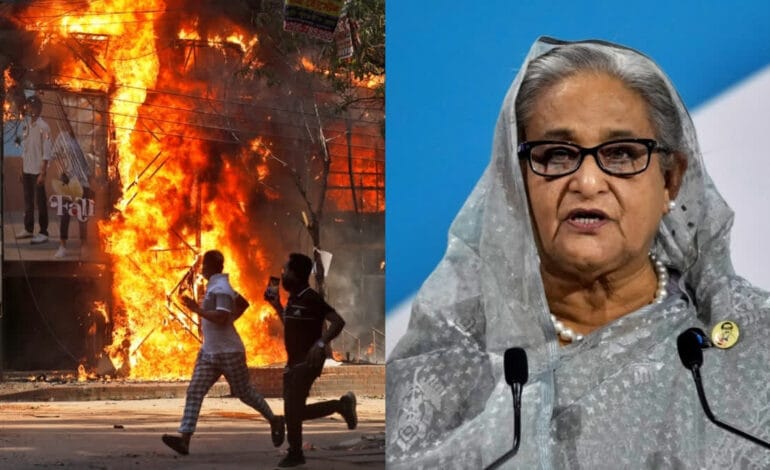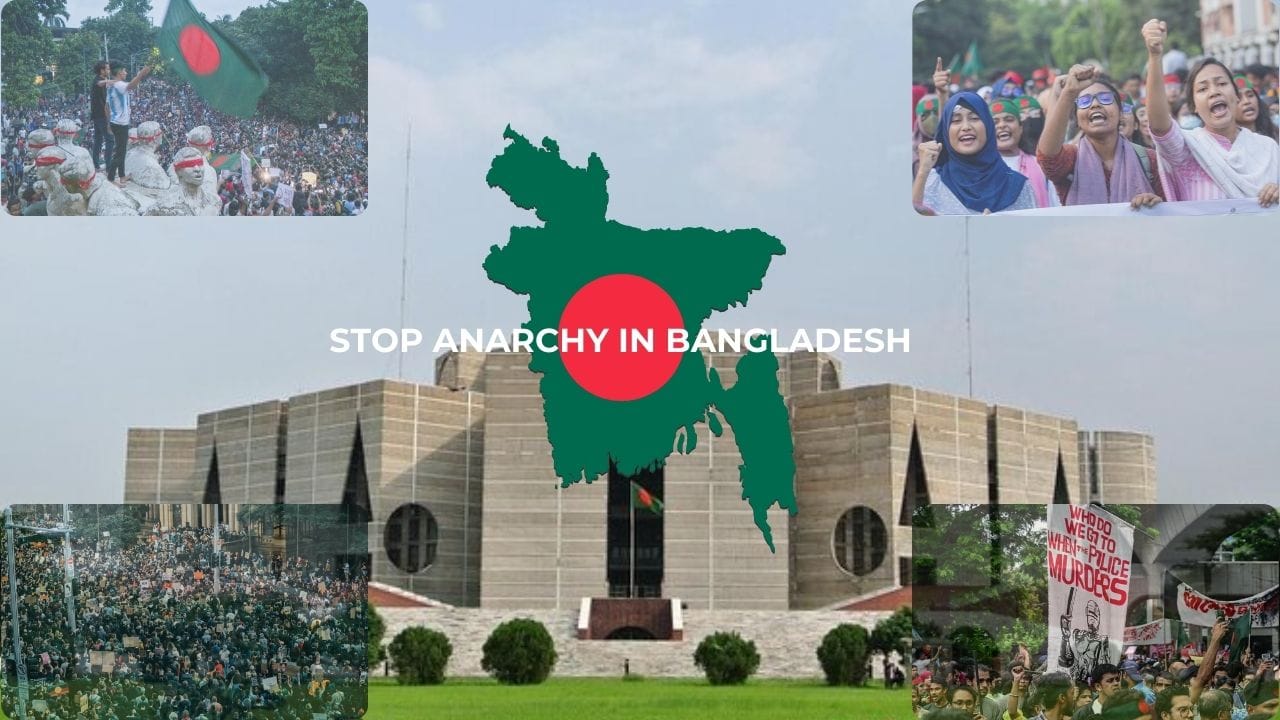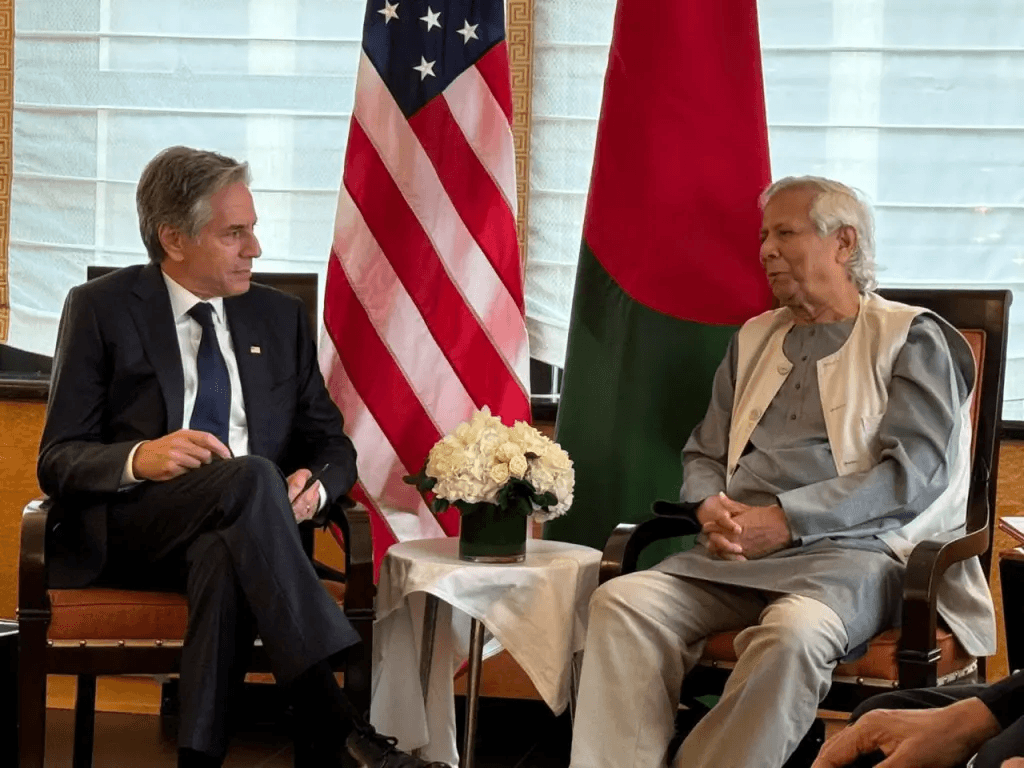Bangladesh in Turmoil: The Aftermath of Sheikh Hasina’s Ouster and the Protests Threatening the Nation
Bangladesh remains in turmoil after the dramatic overthrow of Prime Minister Sheikh Hasina’s government in early 2024. A protest of student demonstrations against economic hardship and allegations of corruption has

Bangladesh remains in turmoil after the dramatic overthrow of Prime Minister Sheikh Hasina’s government in early 2024. A protest of student demonstrations against economic hardship and allegations of corruption has snowballed into a nationwide uprising that brought down the Awami League’s ten years in power under Hasina. Following her fall, the protest has turned wilder and has caused severe damage to the social, political, and economic assets of the country.
Being protests calling for governmental reforms and economic changes, the protests have now become violent in many aspects of the nation. What started as a call to change is now blamed for chaos caused between protesters and security forces in various disruptions that destroy the nation’s infrastructure and Bangladesh’s economy enters ripples of disruption.
The Overthrow of the Sheikh Hasina Government
Sheikh Hasina, once the dominant force in Bangladesh politics for more than a decade, was inevitably compelled to step down due to increasing pressure from opposition parties and continuous protests by students, activists, and also by opposition parties. The protests were initially raised based on increased unemployment, inflation, and corruption allegations but gained further momentum as other political parties took the opportunity to challenge Hasina’s rule.
Such a downfall for Hasina sets a new watershed in the country’s politics- Hasina’s government had clung to power for years and had always been accused of authoritarian measures when necessary to drown dissent. The opposition leaders had reasons to celebrate her removal-it was a victory for democracy, but the aftermath left the country in deeper instability than anyone could have imagined.
Violent Protests Spread Nationwide
It has been since she left that protests have become violent and destructive. Those protests continued for days since they obstructed the roads, burnt government buildings, and clashed with the forces of security in Dhaka, Chittagong, Sylhet, and other major cities. Public transportation is crippled. All the schools and businesses are shut down. The daily-life for ordinary citizens of this nation has turned upside down.
Now, scenes of violence are a common affair in Dhaka, the capital city of Bangladesh as protesters armed with sticks and stones clashed with the police equipped with tear gas and water cannons and several deaths with dozens of injuries by skirmishes between the two parties. Almost all government buildings have been targeted, and reports of arson and vandalism are central to the headlines.
The disruption to everyday life has been severe. Hospitals have had a hard time functioning as the pressure of the protests is taking its toll; and water, electricity, and telecommunications have been cut off intermittently. Economists say the long-term impacts of the protests could be calamitous in as much as most industries, especially textiles, are adversely affected by production delays and supply chain disruptions.
The Economy
Visible economic costs of the demonstrations are emerging. Bangladesh, increasingly being taken as a bright economic power in South Asia, is being threatened now by the possibility of stagnation given the unfolding long-withstanding unrest. All these key sectors of the country, including its indispensable garment industry, stand at risk of lasting damage.
The garment industry, which accounts for more than 80% of Bangladesh’s exports, will be most affected by strikes and transportation blockades. Factories in the industrial hubs of Ashulia and Gazipur are already facing problems in meeting international orders; some factories even reported cancellation due to delays. This sets the scene for Bangladesh to lose its position at the head table of top exporters of garments globally.
Besides the garment industry, the whole economy is affected. Prices are rising; foreign investments have slowed; and the Bangladeshi Taka is losing value against international currencies. Small businesses, already dwindled by the economic downturn that started the protests, continue to suffer as people lose confidence in consuming commodities and supply chains are affected.
Political Standstill and Uncertainty
The political landscape remains uncertain with the continued protests. United in their opposition to Sheikh Hasina, yet divided on a way forward, there does not seem to be clear leadership and a consensus on how to stabilise the country following the collapse of the government. So far, without a functioning central government, the country is, to all intents and purposes, paralyzed.
Another fear is that the political vacuum will be exploited by extremist groups to increase their levels of violence. Law enforcement agencies are already struggling to restore order. The military has been deployed in a number of cities in an attempt to quell the violence, but they have exacerbated hostilities in some areas.
The alarm has therefore been sounded by several human rights organisations on the situation in Bangladesh, deducing that the country stands at a perilous crossroads where it could degenerate into further mayhem if swift action is not taken to restore order and open up avenues of dialogue between political factions.
Bangladesh now lies in the hands of political leaders, who must find a way to take the country forward in a manner that addresses the people’s pleas without letting the country spiral into further violence and instability. That, however, seems no closer to fruition, and the country sits trapped in a cycle of protests and uncertainty as its future hangs in the balance.
As the situation continues to evolve, people in Bangladesh are trapped between a desire for political change and the harsh realities of a nation in turmoil.



